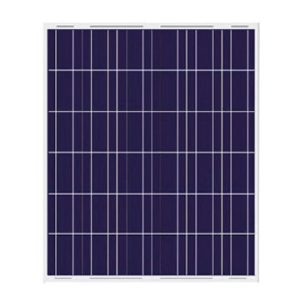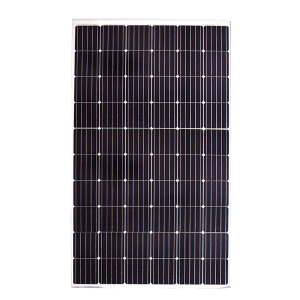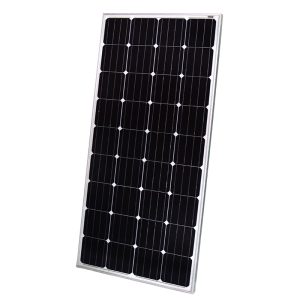As Pakistan grapples with the challenges of energy security and environmental sustainability, the adoption of solar energy has emerged as a promising solution. The country’s abundant sunshine and favorable climatic conditions make it an ideal location for harnessing the power of the sun. In recent years, the government has implemented various initiatives and incentives to promote the use of solar energy, recognizing its potential to alleviate the nation’s energy crisis and reduce its carbon footprint.
One of the key drivers of this solar revolution is the increasing affordability and accessibility of solar panels. Among the various panel options available, the 450W solar panel has gained significant traction due to its optimal balance of efficiency and cost-effectiveness. This comprehensive guide aims to provide an in-depth understanding of the pricing landscape for 450W solar panels in Pakistan, exploring the factors that influence their cost, the latest market trends, and the long-term benefits of investing in this renewable energy source.
Factors Affecting Solar Panel Prices
The price of solar panels in Pakistan is influenced by a multitude of factors, each playing a crucial role in determining the overall cost. Understanding these factors is essential for making informed decisions and maximizing the value of your solar investment.
Panel Type
The type of solar panel you choose can significantly impact the overall cost. The two primary categories are monocrystalline and polycrystalline panels.
Monocrystalline Solar Panels: These panels are made from a single, continuous crystal structure, resulting in higher efficiency and performance. However, they are typically more expensive than their polycrystalline counterparts.
Polycrystalline Solar Panels: Composed of multiple silicon crystals, polycrystalline panels are less efficient but more affordable than monocrystalline panels.
Additionally, solar panels can be classified as P-Type or N-Type, depending on the type of semiconductor material used. N-Type panels are generally more efficient but also more expensive.
Bifacial Solar Panels: These panels can capture sunlight from both the front and rear sides, increasing their energy production potential. While more costly than traditional panels, bifacial panels can offer long-term cost savings in suitable environments.
Brand and Quality
The brand and quality of solar panels play a significant role in determining their price. Tier 1 brands, such as Jinko, Canadian Solar, JA Solar, and Trina Solar, are known for their high-quality products and stringent manufacturing standards. These panels often come with longer warranties, ranging from 10 to 25 years, ensuring reliable performance and longevity.
While cheaper alternatives may be tempting, it’s crucial to consider the long-term implications of compromising on quality. Investing in reputable brands can provide peace of mind and potentially lower maintenance and replacement costs over the panel’s lifespan.
Supply and Demand
The solar panel market in Pakistan is heavily influenced by supply and demand dynamics. Supply chain disruptions, import restrictions, or sudden surges in demand can lead to price fluctuations.
For instance, the COVID-19 pandemic caused significant disruptions in the global solar supply chain, leading to temporary price increases. Similarly, periods of high electricity costs or frequent load shedding can drive up demand for solar panels, potentially increasing their prices.
Economic Factors
Economic factors, such as inflation rates and currency devaluation, can also impact the cost of solar panels in Pakistan. As the Pakistani rupee fluctuates against major currencies, the import costs of solar panels can vary accordingly.
Additionally, import taxes and duties imposed by the government can further contribute to the overall price of solar panels in the local market.
Latest Solar Panel Prices in Pakistan (as of October 2023)
Based on the latest market trends and information from reputable sources, here are the approximate price ranges for 450W solar panels in Pakistan as of October 2023:
Monocrystalline Solar Panels
- 550W Monocrystalline Solar Panel P-Type: PKR 29,000 – PKR 31,500
- 580W Monocrystalline Solar Panel N-Type: PKR 35,500 – PKR 38,500
Bifacial Solar Panels
- 550W Bifacial Solar Panel: PKR 40,500 – PKR 42,500
It’s important to note that these prices are subject to change based on market conditions, and it’s advisable to consult with reputable solar panel suppliers or installers for the most up-to-date pricing information.
Where to Buy Solar Panels
When it comes to purchasing solar panels in Pakistan, there are several options available:
- Authorized Dealers and Distributors: Many reputable solar panel manufacturers have authorized dealers and distributors in Pakistan. These channels offer genuine products, warranties, and after-sales support. Companies like Solar Exporters, a professional solar module manufacturer with over 12 years of experience in production and quality control since 2010, have established a strong presence in the Pakistani market.
- Online Marketplaces: With the rise of e-commerce, online marketplaces have become a popular platform for purchasing solar panels. However, it’s crucial to exercise caution and conduct thorough research to ensure you are dealing with reputable sellers and receiving genuine products.
- Direct from Manufacturers: Some solar panel manufacturers may offer direct sales to customers in Pakistan. This option can potentially provide cost savings but may require larger minimum order quantities.
Regardless of the purchasing channel, it’s essential to conduct due diligence by researching the seller’s reputation, product quality, warranties, and after-sales support. Additionally, consulting with solar experts or industry professionals can help ensure you make an informed decision and avoid potential pitfalls.
Long-term Benefits and Considerations
While the upfront cost of solar panels may seem substantial, it’s important to consider the long-term benefits and potential cost savings they offer:
- Energy Cost Savings: By generating your own electricity from the sun, you can significantly reduce your reliance on the grid and lower your monthly electricity bills. Over the lifespan of the solar panel system, these savings can offset the initial investment and potentially provide a positive return on investment.
- Contribution to a Greener Future: Adopting solar energy is a step towards a more sustainable and environmentally friendly future. By reducing your carbon footprint and reliance on fossil fuels, you can contribute to mitigating the effects of climate change and promoting a cleaner environment.
- Increased Property Value: Installing a solar panel system can potentially increase the value of your property, making it more attractive to potential buyers who prioritize energy efficiency and sustainability.
- Government Incentives: The Pakistani government has implemented various incentives and tax credits to encourage the adoption of solar energy. These incentives can further enhance the financial viability of your solar investment.
However, it’s essential to stay updated with the latest policies, regulations, and incentives related to solar energy in Pakistan. Additionally, consider factors such as the orientation and location of your property, as well as the potential for future expansion or upgrades to your solar system.
Conclusion
The adoption of solar energy in Pakistan is gaining momentum, driven by the increasing affordability of solar panels and the growing awareness of the long-term benefits they offer. The 450W solar panel, in particular, has emerged as a popular choice due to its optimal balance of efficiency and cost-effectiveness.
While the initial investment in solar panels may seem significant, the long-term cost savings, environmental benefits, and potential for increased property value make it a compelling investment. By considering factors such as panel type, brand quality, supply and demand dynamics, and economic factors, you can make an informed decision and maximize the value of your solar investment.
As the demand for solar energy continues to rise in Pakistan, it is expected that the prices of solar panels will become increasingly competitive, further enhancing their accessibility and adoption. By conducting thorough research, consulting with reputable suppliers like Solar Exporters, and staying updated with the latest policies and regulations, you can embark on a journey towards energy independence and a greener future.
Remember, investing in solar energy is not just a financial decision; it’s a commitment to a sustainable and environmentally conscious lifestyle that will benefit both you and future generations.



